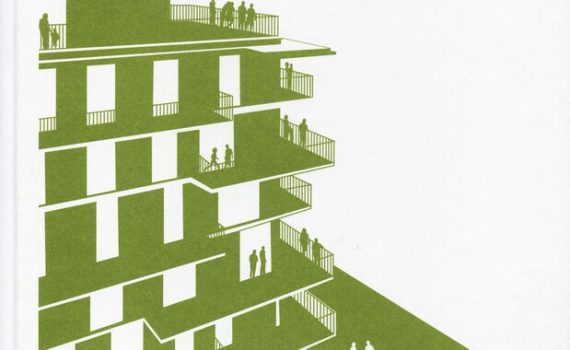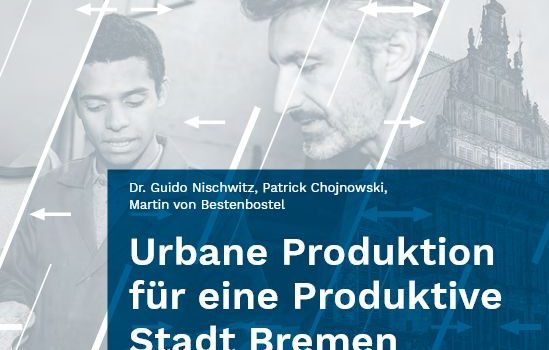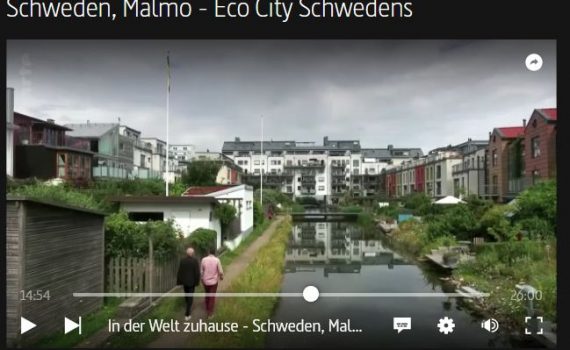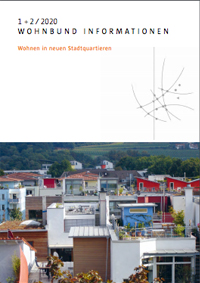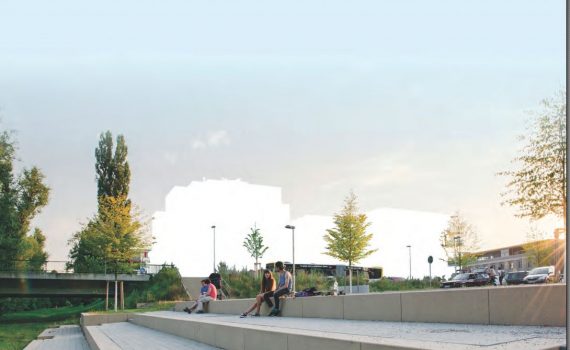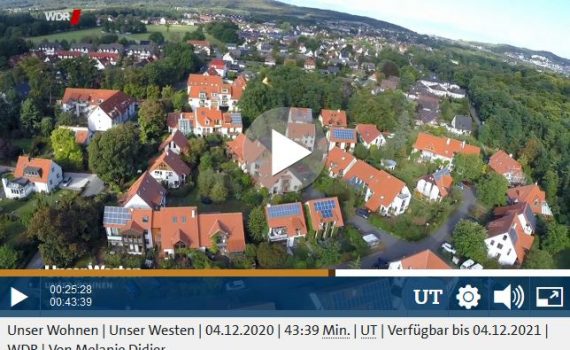 Isabella Marboe (ed.) Bauen für die Gemeinschaft in Wien Neue gemeinschaftliche Formen des Zusammenlebens Edition Detail 2021, 144 pages, de/eng, Euro 39,90
The housing projects presented in Vienna arose from the desire to develop living concepts that strengthen the sense of community and contribute to a society based on solidarity - building groups and participatory projects, neighbourhood houses, temporary or permanent social forms of living and working for marginalised groups such as the homeless and people entitled to asylum. Private flats can be downsized if there is more shared space. These housing and living models are alternatives to capitalist investor thinking. The users get involved, also in the project planning. Ulrike Schartner and Alexander Hagner from gaupenraup+/- explain the starting point and strategies of their work in an introductory interview. In two essays, Robert Temel and Isabella Marboe show the development of communal forms of building and living.
Isabella Marboe (ed.) Bauen für die Gemeinschaft in Wien Neue gemeinschaftliche Formen des Zusammenlebens Edition Detail 2021, 144 pages, de/eng, Euro 39,90
The housing projects presented in Vienna arose from the desire to develop living concepts that strengthen the sense of community and contribute to a society based on solidarity - building groups and participatory projects, neighbourhood houses, temporary or permanent social forms of living and working for marginalised groups such as the homeless and people entitled to asylum. Private flats can be downsized if there is more shared space. These housing and living models are alternatives to capitalist investor thinking. The users get involved, also in the project planning. Ulrike Schartner and Alexander Hagner from gaupenraup+/- explain the starting point and strategies of their work in an introductory interview. In two essays, Robert Temel and Isabella Marboe show the development of communal forms of building and living.
Kategorie für Blog: Social / Culture
[caption id="attachment_28516" align="alignleft" width="560"] Award-winning project "Stadt Landschaft Burg" of the Federal Prize 2020 - © Bundespreis Stadtgrün / Hergen Schimpf[/caption]
The Federal Ministry of Housing, Urban Development and Building today announced the Federal Urban Green Award 2022. This year, the focus is on the topic of "Climate adaptation and quality of life".
Federal Minister Klara Geywitz: "Climate change is a stress test for our cities. We need more trees for a better urban climate, we need soils that can absorb heavy rainfall, we need less sealed surfaces for more biodiversity and to prevent residential neighbourhoods from heating up. With the Federal Urban Green Award 2022, we are honouring the pioneering work that is already shaping the necessary transformation of cities."
Award-winning project "Stadt Landschaft Burg" of the Federal Prize 2020 - © Bundespreis Stadtgrün / Hergen Schimpf[/caption]
The Federal Ministry of Housing, Urban Development and Building today announced the Federal Urban Green Award 2022. This year, the focus is on the topic of "Climate adaptation and quality of life".
Federal Minister Klara Geywitz: "Climate change is a stress test for our cities. We need more trees for a better urban climate, we need soils that can absorb heavy rainfall, we need less sealed surfaces for more biodiversity and to prevent residential neighbourhoods from heating up. With the Federal Urban Green Award 2022, we are honouring the pioneering work that is already shaping the necessary transformation of cities."
Housing industry, architects and municipalities called upon to participate
 Berlin - Affordable and high-quality residential construction is currently more important than ever. For more than three decades, outstanding residential construction projects have been honoured every two years with the German Builder-Owner Award. This year's edition of the competition has now been announced.
The aim of the award, which is sponsored by the Federal Ministry of Housing, Urban Development and Building, is to recognise the responsible efforts of developers to create affordable housing and neighbourhoods of "high quality at affordable costs".
Berlin - Affordable and high-quality residential construction is currently more important than ever. For more than three decades, outstanding residential construction projects have been honoured every two years with the German Builder-Owner Award. This year's edition of the competition has now been announced.
The aim of the award, which is sponsored by the Federal Ministry of Housing, Urban Development and Building, is to recognise the responsible efforts of developers to create affordable housing and neighbourhoods of "high quality at affordable costs".
Building culture is becoming a recognised goal in the real estate industry: with support from the real estate and housing industry, the Institute for Corporate Governance in the German Real Estate Industry (ICG) and the Federal Foundation for Building Culture initiated and developed the Code for building culturea voluntary commitment for the responsible performance of tasks by companies in the real estate industry.
- Other countries are leading the way: Spain adopts 30 km/h speed limit in cities; French cities with 30 km/h speed limit have 70 percent fewer fatal accidents
- Federal government fails "Vision Zero" and ignores 30 km/h as an immediate measure in key points paper for new road safety programme
- Current United Nations Road Safety Week identifies reduction of speed limit to 30 km/h in built-up areas as key measure to protect lives
The Special price on the topic "Urban development revisited: Prices - Practice - Perspectives" was given to the project Urban development area Stuttgarter Straße, French Quarter in Tübingen. The special prize, which is awarded in parallel to the urban development prize, serves to highlight particularly urgent fields of action in urban development and urban planning. It was awarded on 23.4.2021 on the occasion of the 40th anniversary of the German Urban Development Prize to contributions that had already been recognised with prizes and awards between 1980 and 2010. The judging of the special prize was very complex, as it had to cover a span of 30 years, i.e. a generation, of the achievements of German urban development that were considered outstanding at the time, and, in retrospect, it had to be based on robust, objective criteria that could adequately reflect the complexity of 30 years of urban development history and 30 years of urban development models.
 The prize is awarded every two years by the German Academy for Urban Development and Regional Planning (DASL) with significant support from the Wüstenrot Foundation. Urban Development Award in the DSP 2020 competition goes to the project Quarter at the former Blumengroßmark in Berlin. With 81 applications, a particularly large number of projects were submitted for the Urban Design Award. The spectrum was very broad: urban-structural-geographical, thematic, structural-spatial. From the new town hall in the urban planning context of a small municipality to the large conversion project of a metropolitan region, the interdisciplinary jury (urban planning, architecture, open space planning, preservation of historical monuments, economics, sociology) was faced with a very difficult decision in many cases.
The prize is awarded every two years by the German Academy for Urban Development and Regional Planning (DASL) with significant support from the Wüstenrot Foundation. Urban Development Award in the DSP 2020 competition goes to the project Quarter at the former Blumengroßmark in Berlin. With 81 applications, a particularly large number of projects were submitted for the Urban Design Award. The spectrum was very broad: urban-structural-geographical, thematic, structural-spatial. From the new town hall in the urban planning context of a small municipality to the large conversion project of a metropolitan region, the interdisciplinary jury (urban planning, architecture, open space planning, preservation of historical monuments, economics, sociology) was faced with a very difficult decision in many cases.
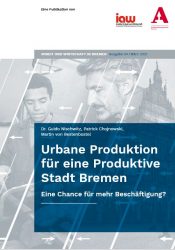 In a research project of the iaw, the conceptual foundations of urban production and the productive city were prepared with a view to the situation in Bremen and analysed in their impact structure. The study makes proposals for describing and recording urban production that is compatible with the city and embedding it in an urban development policy model of a productive city. On the basis of seven reference cities (Vienna, Zurich, Stuttgart, Hamburg, Frankfurt am Main, Wuppertal, Bochum), corresponding activities were filtered out and their transferability to the city of Bremen was examined. In the city of Bremen, eight locations and neighbourhoods (including the Tabakquartier and Kellogg-Areal) were examined with regard to their potential for implementing a productive city.
In a research project of the iaw, the conceptual foundations of urban production and the productive city were prepared with a view to the situation in Bremen and analysed in their impact structure. The study makes proposals for describing and recording urban production that is compatible with the city and embedding it in an urban development policy model of a productive city. On the basis of seven reference cities (Vienna, Zurich, Stuttgart, Hamburg, Frankfurt am Main, Wuppertal, Bochum), corresponding activities were filtered out and their transferability to the city of Bremen was examined. In the city of Bremen, eight locations and neighbourhoods (including the Tabakquartier and Kellogg-Areal) were examined with regard to their potential for implementing a productive city.
 A most welcome piece of news reached the city of Aachen this morning (17 March 2021): Federal Minister Horst Seehofer has announced this year's selection of the "National Projects of Urban Development" and announced that the development of the Büchel old town quarter will receive up to 5.5 million euros in funding. Aachen is thus one of four municipalities in NRW to have been awarded the contract. With the amount of funding, the city is in third place nationwide.
A most welcome piece of news reached the city of Aachen this morning (17 March 2021): Federal Minister Horst Seehofer has announced this year's selection of the "National Projects of Urban Development" and announced that the development of the Büchel old town quarter will receive up to 5.5 million euros in funding. Aachen is thus one of four municipalities in NRW to have been awarded the contract. With the amount of funding, the city is in third place nationwide.
Animation from Jan Kamensky (2020)
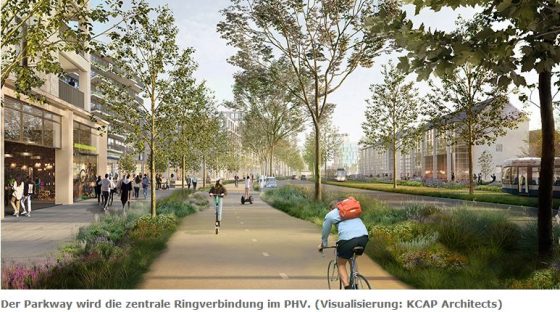 Heidelberg is receiving massive funding from the 2021 urban development programme for two construction projects on conversion sites. The development of Patrick-Henry-Village (PHV) into a new city district has even received the highest funding amount in the entire programme. Heidelberg will receive 3.5 million euros for this project. In addition, the conversion of the sports hall on the former US hospital in Rohrbach will be funded with 400,000 euros. This was announced by the Baden-Württemberg Ministry of Economics on Wednesday, February 3.
Heidelberg is receiving massive funding from the 2021 urban development programme for two construction projects on conversion sites. The development of Patrick-Henry-Village (PHV) into a new city district has even received the highest funding amount in the entire programme. Heidelberg will receive 3.5 million euros for this project. In addition, the conversion of the sports hall on the former US hospital in Rohrbach will be funded with 400,000 euros. This was announced by the Baden-Württemberg Ministry of Economics on Wednesday, February 3.
 "New large-scale construction projects and ecological innovations have ensured that Malmö is now a prime example of the direct transition from an industrial metropolis to a sustainable eco city. The secret recipe: the city not only relied on innovative technologies, but above all on the active participation of citizens in the transformation."
"New large-scale construction projects and ecological innovations have ensured that Malmö is now a prime example of the direct transition from an industrial metropolis to a sustainable eco city. The secret recipe: the city not only relied on innovative technologies, but above all on the active participation of citizens in the transformation."
A new study from Denmark takes a look at the costs of sustainable building construction and shows that more sustainable does not automatically mean more expensive. On the contrary. The study by Buus Consult on behalf of the DGNB system partner from Denmark, the Green Building Council Denmark, now provides clarity. In the study, it takes a close look at 37 DGNB-certified buildings.
 On the occasion of the meeting of EU Ministers for Urban Development and Territorial Cohesion on the "New Leipzig Charter", Daniela Wagner, spokesperson for urban development for Alliance 90/The Greens in the German Bundestag, explains:
We welcome the "New Leipzig Charter". Without the transformative power of cities and the ideas and drive of their residents, we will not be able to overcome the challenges of the climate crisis. Nevertheless, the Charter contains significant gaps. The guiding principle of the resilient city is missing. The development of robust and resilient cities is important in order to better assess risks and recognise and prevent dangers in good time. The guiding principle of the healthy city is also not mentioned - despite the heatwaves caused by the climate crisis, a never-ending stream of air pollutants from fossil fuelled combustion engines and the current challenge of a global pandemic.
On the occasion of the meeting of EU Ministers for Urban Development and Territorial Cohesion on the "New Leipzig Charter", Daniela Wagner, spokesperson for urban development for Alliance 90/The Greens in the German Bundestag, explains:
We welcome the "New Leipzig Charter". Without the transformative power of cities and the ideas and drive of their residents, we will not be able to overcome the challenges of the climate crisis. Nevertheless, the Charter contains significant gaps. The guiding principle of the resilient city is missing. The development of robust and resilient cities is important in order to better assess risks and recognise and prevent dangers in good time. The guiding principle of the healthy city is also not mentioned - despite the heatwaves caused by the climate crisis, a never-ending stream of air pollutants from fossil fuelled combustion engines and the current challenge of a global pandemic.

 The German Solar Energy Society e.V. (DGS) and the energy advice service of the consumer advice centre have been cooperating with each other since 1 December 2020. Consumer enquiries from both institutions are answered by the energy advisors of the consumer advice centre. In return, the DGS trains the advisors of the consumer advice centre in the subject area of plug-in solar devices.
The German Solar Energy Society e.V. (DGS) and the energy advice service of the consumer advice centre have been cooperating with each other since 1 December 2020. Consumer enquiries from both institutions are answered by the energy advisors of the consumer advice centre. In return, the DGS trains the advisors of the consumer advice centre in the subject area of plug-in solar devices.
 The ecological model settlement on a former barracks site in Munich sets new standards in timber construction. Various timber construction methods and building types up to seven storeys are being tested side by side in eight building projects with the aim of a final scientific evaluation. Timber frame, timber frame and timber hybrid construction methods are being used.
The ecological model settlement on a former barracks site in Munich sets new standards in timber construction. Various timber construction methods and building types up to seven storeys are being tested side by side in eight building projects with the aim of a final scientific evaluation. Timber frame, timber frame and timber hybrid construction methods are being used.
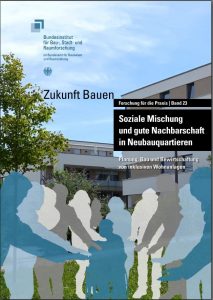 The Institute for Urban Planning and Social Research WEEBER+PARTNER (Stuttgart) examined 16 case studies and interviewed responsible persons in municipal, cooperative and private housing companies. The projects are characterized by a wide range of planning and construction approaches. According to the study, social diversity requires structural diversity: Rental, social and owner-occupied apartments of different sizes and with diverse layouts were created in the new housing quarters. They are socially mixed - even within buildings - with the respective proportions in the neighbourhood being derived from local requirements. The new quarters also offer space for communal forms of living, for example for older people and those in need of care. And they are characterised by an attractively designed and green residential environment. Concept awards promote the planning and implementation of such projects: Through them, plots of land are not allocated according to the highest price, but for the best concept.
The Institute for Urban Planning and Social Research WEEBER+PARTNER (Stuttgart) examined 16 case studies and interviewed responsible persons in municipal, cooperative and private housing companies. The projects are characterized by a wide range of planning and construction approaches. According to the study, social diversity requires structural diversity: Rental, social and owner-occupied apartments of different sizes and with diverse layouts were created in the new housing quarters. They are socially mixed - even within buildings - with the respective proportions in the neighbourhood being derived from local requirements. The new quarters also offer space for communal forms of living, for example for older people and those in need of care. And they are characterised by an attractively designed and green residential environment. Concept awards promote the planning and implementation of such projects: Through them, plots of land are not allocated according to the highest price, but for the best concept.
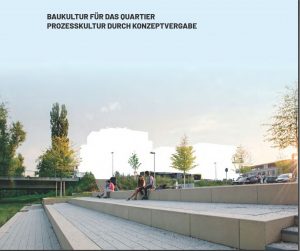 Conceptual procedures are increasingly establishing themselves as a further instrument of municipal land policy for locations with development potential. Here, the property is not allocated according to the highest price, but according to the concept that promises the most sustainable approaches to the further development of the neighbourhood. In this way, the procedures offer municipalities approaches to solving two current and urgent problems: the need for high-quality urban development and affordable housing.
Conceptual procedures are increasingly establishing themselves as a further instrument of municipal land policy for locations with development potential. Here, the property is not allocated according to the highest price, but according to the concept that promises the most sustainable approaches to the further development of the neighbourhood. In this way, the procedures offer municipalities approaches to solving two current and urgent problems: the need for high-quality urban development and affordable housing.
UmweltBank has acquired the former GfK site on Nuremberg's Nordwestring. The company is planning an ecologically and socially sustainable urban quarter with housing, a daycare center, commercial space and public green areas. The new headquarters of the green bank will also be part of the quarter. The previous owner, a joint venture of Pegasus Capital Partners and Art-Invest Real Estate, had already developed an urban development concept in recent years and coordinated it with the City of Nuremberg. UmweltBank would like to further develop this concept in line with its own requirements in close cooperation with the city.
Jury statement: "The WIR neighbourhood in Berlin is characterised not only by its high energy efficiency (KfW 40 standard) and the use of wood as a renewable raw material for the building construction, but also by the collaborative planning process, which led to different housing concepts and the integration of different social communities. Communal areas and shared facilities such as a residents' workshop, swimming pool, neighbourhood square and daycare centre enable a lively and diverse neighbourhood. This also includes a dementia residential community as well as organisations for youth work and refugee groups. The five apartment blocks were realised with a timber frame construction and the façade in timber panel construction. This resulted in flexible floor plans that offer good conversion options."
The popular ESA dormitory on the campus of the TU Kaiserslautern (TUK) is in great need of renovation. The foundation's renovation concept for TUK envisions the former experimental building becoming a CO2-neutral building. The estimated costs for the work have not yet been fully raised. Therefore, the ESA residents are participating with a crowdfunding campaign, which has been available on the Startnext platform since September 13.
"The world's water resources are currently facing the greatest threat in the history of mankind," write aquatic ecologists in their recently published statement paper. More than one hundred professional societies of aquatic ecosystem research around the globe have signed the joint statement. In it, the researchers show the dramatic effects that climate change is having on aquatic ecosystems worldwide. They call for immediate concerted action by politics, business, science and society to halt the progress of climate change.
 Now that almost all 570 flats in Germany's largest timber-built housing estate in Prinz-Eugen-Park have been occupied, the Munich planning committee has recommended realising the timber-built follow-up project "Kreativquartier" with 370 residential units.
Here are the key data:
http://sdg21.eu/db/kreativquartier
Now that almost all 570 flats in Germany's largest timber-built housing estate in Prinz-Eugen-Park have been occupied, the Munich planning committee has recommended realising the timber-built follow-up project "Kreativquartier" with 370 residential units.
Here are the key data:
http://sdg21.eu/db/kreativquartier
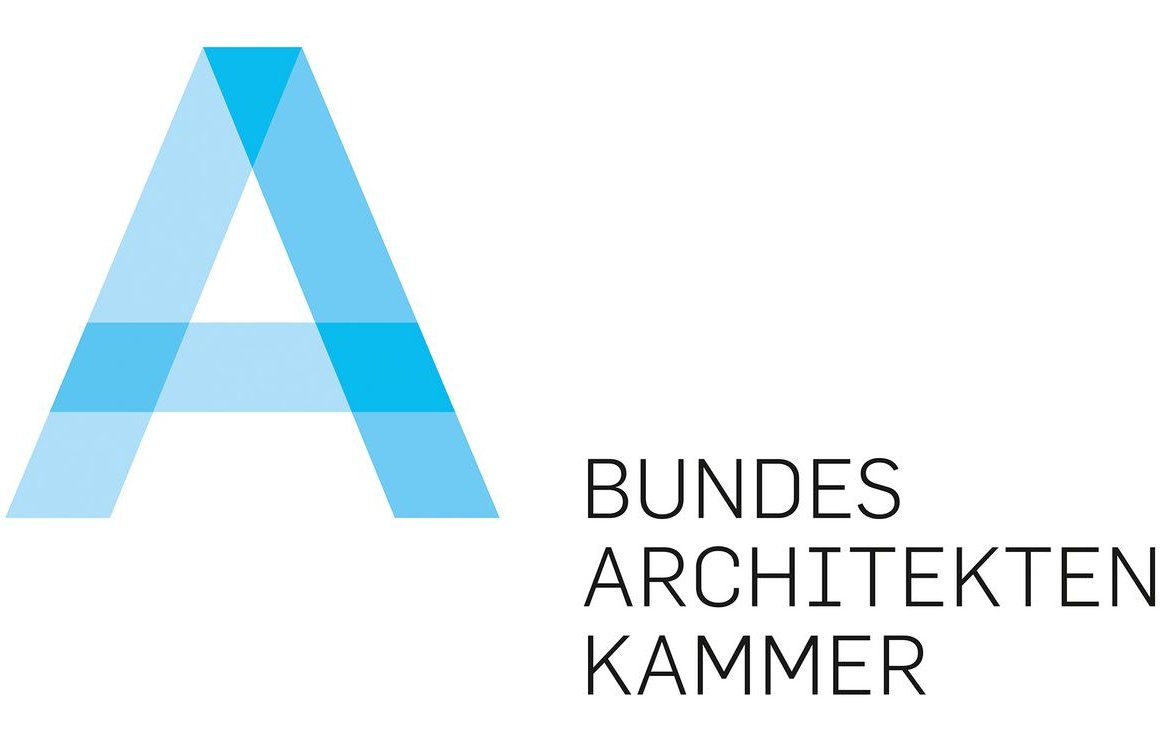 The Federal Chamber of Architects (BAK) and the Federal Foundation of Baukultur presented their proposal for a "Baukultur Innovation Programme" to politicians in Berlin today on behalf of the planning and construction industry.
Anne Katrin Bohle, State Secretary at the Federal Ministry of the Interior, Building and Community, accepted the four-point plan. In it, the authors suggest measures to overcome the coronavirus crisis that will have a lasting economic and social impact.
The Federal Chamber of Architects (BAK) and the Federal Foundation of Baukultur presented their proposal for a "Baukultur Innovation Programme" to politicians in Berlin today on behalf of the planning and construction industry.
Anne Katrin Bohle, State Secretary at the Federal Ministry of the Interior, Building and Community, accepted the four-point plan. In it, the authors suggest measures to overcome the coronavirus crisis that will have a lasting economic and social impact.
 Konturen einer solidarischen Stadtpolitik
Anton Brokow-Loga (Hrsg.),
Frank Eckardt (Hrsg.)
Städte ohne Wachstum – eine bislang kaum vorstellbare Vision. Doch Klimawandel,
Ressourcenverschwendung, wachsende soziale Ungleichheiten und viele andere
Zukunftsgefahren stellen das bisherige Allheilmittel Wachstum grundsätzlich infrage. Wie wollen
wir heute und morgen zusammenleben? Wie gestalten wir ein gutes Leben für alle in der Stadt?
Konturen einer solidarischen Stadtpolitik
Anton Brokow-Loga (Hrsg.),
Frank Eckardt (Hrsg.)
Städte ohne Wachstum – eine bislang kaum vorstellbare Vision. Doch Klimawandel,
Ressourcenverschwendung, wachsende soziale Ungleichheiten und viele andere
Zukunftsgefahren stellen das bisherige Allheilmittel Wachstum grundsätzlich infrage. Wie wollen
wir heute und morgen zusammenleben? Wie gestalten wir ein gutes Leben für alle in der Stadt?
 [su_spacer]
The documentary features a 5-minute sequence about the Waldquelle ecological housing estate in Bielefeld. Ute Möller, one of the founders, gives a tour of the eco-settlement and talks about the experiences and developments in the now almost 25-year-old settlement with lots of wood, greenery and solar cells on the roof.
[su_spacer]
The documentary features a 5-minute sequence about the Waldquelle ecological housing estate in Bielefeld. Ute Möller, one of the founders, gives a tour of the eco-settlement and talks about the experiences and developments in the now almost 25-year-old settlement with lots of wood, greenery and solar cells on the roof.
Newly built districts with space-efficient mobility offers
A new sustainable urban district is being built on the west side of the Merwedekanal in a central location not far from Utrecht Central Station. The plan is to create a mixed-use district with 6,000 to 9,000 homes for approximately 12,000 residents. The area will become a showcase for healthy and sustainable living with innovative concepts for recycling, energy production, climate adaptation and mobility solutions. Planned completion: by 2024
 21.01.2020 Everyone is talking about sustainability - including the construction industry. A prize that the Federal Ministry for the Environment, Nature Conservation and Nuclear Safety (BMU) and the Federal Environment Agency (UBA) have been offering since today provides the appropriate topic for discussion: With the new "Federal Award for Environment and Building", which will be awarded for the first time in 2020, the initiators want to distinguish projects with exemplary character in terms of sustainability - not only in the classic areas of existing buildings and new buildings, but also in five other categories. All players in the building sector can apply. The deadline for entries is 15 April 2020.
21.01.2020 Everyone is talking about sustainability - including the construction industry. A prize that the Federal Ministry for the Environment, Nature Conservation and Nuclear Safety (BMU) and the Federal Environment Agency (UBA) have been offering since today provides the appropriate topic for discussion: With the new "Federal Award for Environment and Building", which will be awarded for the first time in 2020, the initiators want to distinguish projects with exemplary character in terms of sustainability - not only in the classic areas of existing buildings and new buildings, but also in five other categories. All players in the building sector can apply. The deadline for entries is 15 April 2020.

